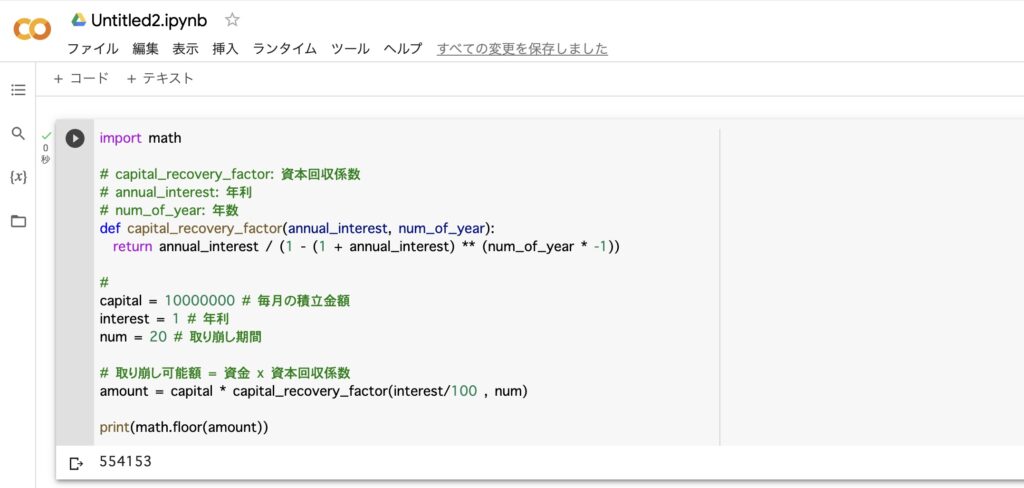年金などの資金を複利運用しながら取り崩して行くとき、一定の期間でいくら取り崩すことができるかを計算します。
計算式
資本回収係数を用いて計算します。
取崩可能額 = 資金 × 資本回収係数
資本回収係数 = 年利率 ÷ 1 – (( 1 + 年利率 ) ^ ( 年数 × -1 )))
Pythonプログラム
import math
# capital_recovery_factor: 資本回収係数
# annual_interest: 年利
# num_of_year: 年数
def capital_recovery_factor(annual_interest, num_of_year):
return annual_interest / (1 - (1 + annual_interest) ** (num_of_year * -1))
#
capital = 10000000 # 毎月の積立金額
interest = 1 # 年利
num = 20 # 取り崩し期間
# 取り崩し可能額 = 資金 x 資本回収係数
amount = capital * capital_recovery_factor(interest/100 , num)
print(math.floor(amount))計算例
例)年金資金の10,000,000円を年利率1%で複利運用しながら、20年で取り崩したい。1年あたりいくら取り崩せるか?
10,000,000 × ( 0.01 ÷ (1 – (1 + 0.01) ^ -10 ) ) = 554,153円
PythonのプログラムをGoogle Colabへコピーして結果を確認してみて下さい。









コメント